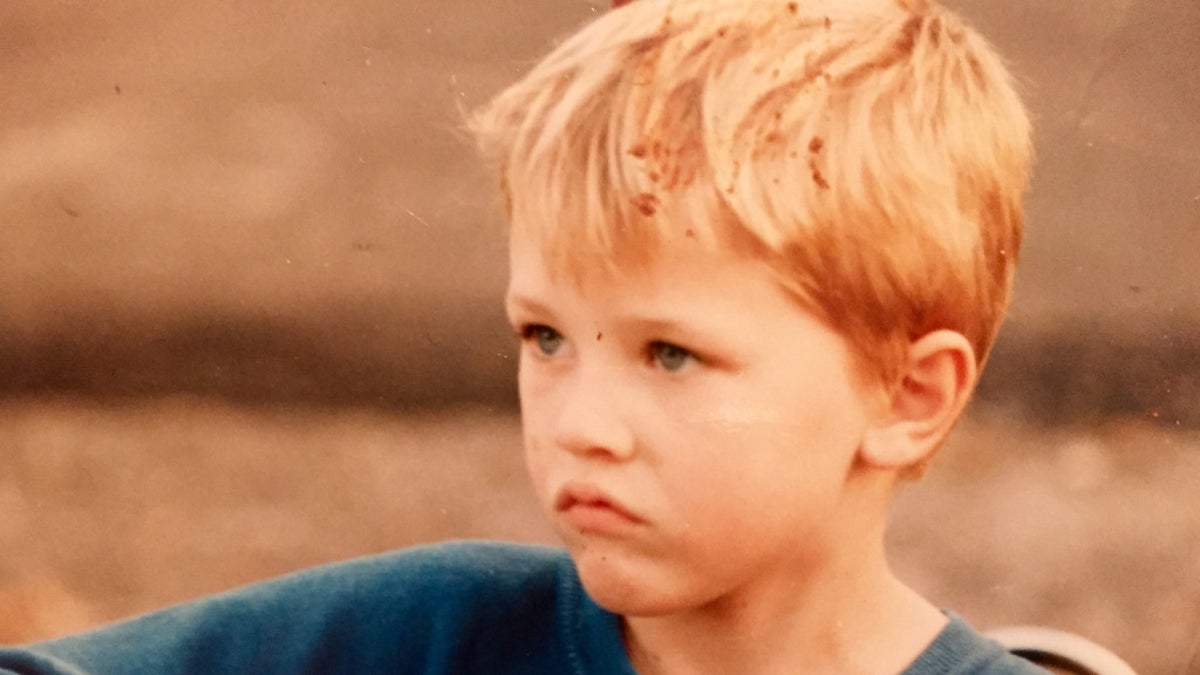
The author as a young boy. (Courtesy of the author)
A lot of parents in Mississippi would have been disappointed to have me as their youngest son.
I did not watch sports, nor was I particularly athletic. I did not hunt or fish; and although I did spend a lot of time in the woods, when I was out there, I was often pretending to be in Narnia.
I also read books — lots of books — and began keeping a journal in elementary school. I wrote a full-length soap opera for my eighth-grade Advanced Placement English class. I joined the choir and auditioned for parts in the local civic light opera. And I enjoyed rich conversation, which resulted in an uncool number of friendships with girls.
This did not bode well for me at school. Sure, I could draw a crowd when I played the part of the class clown, but I knew I was odd. And many of the boys at school used the most powerful word they could to confirm my peculiarity: “queer.”
I felt out of place, unwanted, and incapable of proving myself to a world of boys who easily established their masculinity by being conversant with code words like “deer season,” “mud riding,” “end zone,” and “offensive line.”
I felt out of place, unwanted, and incapable of proving myself to a world of boys who easily established their masculinity by being conversant with code words like “deer season,” “mud riding,” “end zone,” and “offensive line.”
But there was one place where my oddball status was not a liability: It was with my parents.
When I was in elementary school, my dad, a truck driver, laughed out loud at the radio shows I made with a cassette tape, homemade sound effects, and my unique ability to change my voice.
My mom drove me to countless rehearsals and auditions, and she even signed me up for a theater camp.
My parents didn’t try to steer me away from creative pursuits, and they didn’t have a panic attack when I showed no interest in sports.
They just loved me and didn’t seem to notice the things that made me an oddball at school. And the constant backdrop of their love was the idea that Jesus loved me, which was critical. Because even if I didn’t fit the hyper-masculine mold of other bass-fishing boys in Mississippi, at least I knew a brawny Jewish fisherman liked me just the way I was.
This morning, I was talking to my wife about the way my parents loved and accepted me, and I wondered out loud what my life would’ve been like without their support. As Aslan said to Lucy in one of the "Chronicles of Narnia," “Child … did I not explain to you once before that no one is ever told what would have happened?” And in this case, I don’t want to know.
I’m grateful for the way things turned out.
I’m grateful for all that unhindered, right-brained, creative activity from my childhood.
It helped me grow up and be comfortable performing on stages, sitting in front of cameras, and writing for large audiences.
I’m grateful that my emotional awareness and disdain for watching sports turned out to be a big turn-on for the woman I would marry — a woman who actually prayed for a man who liked to talk a lot (God must have been like, "I know just the guy!").
I’m grateful that I eventually became athletic at my own pace, and I’m particularly grateful for the off-beat friends that I made as a result of not fitting in with all the “normal” boys.
Most of all, today I’m grateful for the parents God gave me. They offered exactly what I needed in those moments when I was testing out the real me: a space to be loved for the quirky boy I was. In doing so, they helped me grow into the man I am today, and my wife and I think that guy is just fine.
